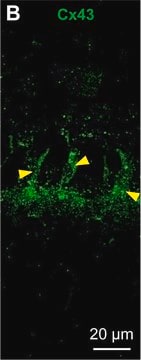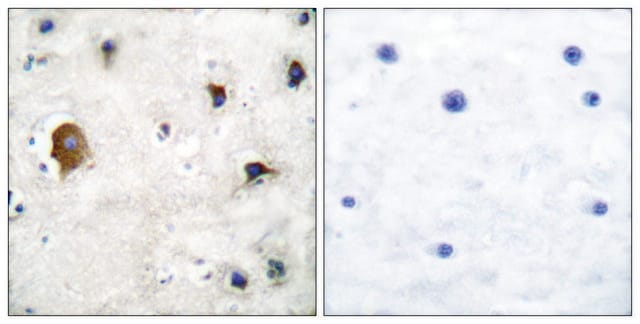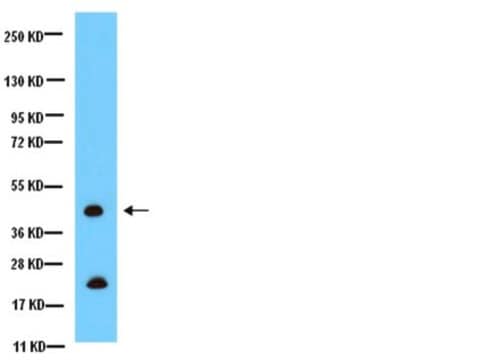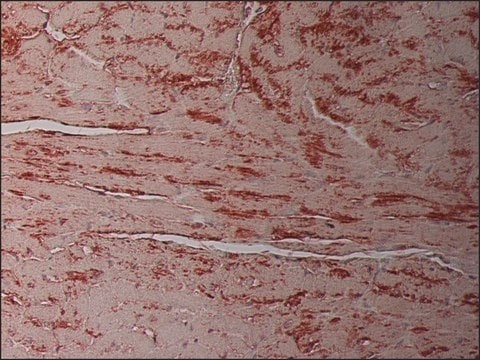AB1727
Anti-Connexin 43 Antibody
CHEMICON®, rabbit polyclonal
Synonym(s):
Gap Junction alpha-1 Protein (CxA-1)
About This Item
Recommended Products
product name
Anti-Connexin 43 Antibody, Chemicon®, from rabbit
biological source
rabbit
Quality Level
antibody form
affinity isolated antibody
antibody product type
primary antibodies
clone
polyclonal
purified by
affinity chromatography
species reactivity
mouse, bovine, rat
manufacturer/tradename
Chemicon®
technique(s)
ELISA: suitable
immunocytochemistry: suitable
immunohistochemistry: suitable
immunoprecipitation (IP): suitable
western blot: suitable
NCBI accession no.
UniProt accession no.
shipped in
wet ice
target post-translational modification
unmodified
Gene Information
human ... GJA1(2697)
General description
a predicted M.W. of ~43 kDa. It is prominently expressed in heart (see reviews: Kumar & Giula 1996; White et al. 1995; Evans 1994; Beyer et al. 1990).
Specificity
Immunogen
corresponding to amino acids 360-382 within
the C-terminus of mouse connexin 43.
Application
Immunocytochemistry: not tested. It is recommended that the antibody be tried at 2-20μg/mL in formaldehyde fixed (Beyer et al. 1985; Nicholson et al. 1985; John et al. 1991; Fishman et al. 1990).
Immunoblotting: 1-10μg/mL using Chemiluminescence technique.
Optimal working dilutions must be determined by end user.
Immunohistochemistry: A 1:50 dilution of this antibody detected Connexin 43 in sections from mouse heart tissue pretreated with Tris-EDTA buffer, pH 9.0. Proteins were visualized using a donkey anti-rabbit secondary antibody conjugated to HRP and chemiluminescence detection.
Cell Structure
Adhesion (CAMs)
Physical form
Storage and Stability
Legal Information
Disclaimer
Not finding the right product?
Try our Product Selector Tool.
recommended
Storage Class Code
12 - Non Combustible Liquids
WGK
WGK 1
Flash Point(F)
Not applicable
Flash Point(C)
Not applicable
Certificates of Analysis (COA)
Search for Certificates of Analysis (COA) by entering the products Lot/Batch Number. Lot and Batch Numbers can be found on a product’s label following the words ‘Lot’ or ‘Batch’.
Already Own This Product?
Find documentation for the products that you have recently purchased in the Document Library.
Our team of scientists has experience in all areas of research including Life Science, Material Science, Chemical Synthesis, Chromatography, Analytical and many others.
Contact Technical Service








